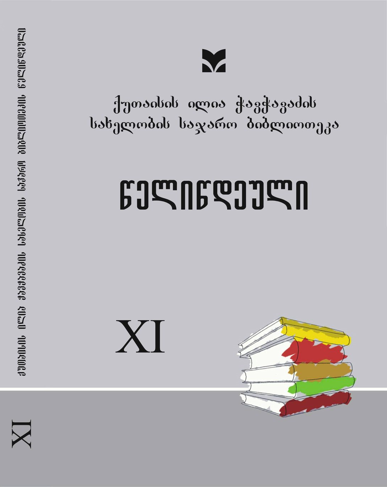Development of City life in Gori late middle ages
DOI:
https://doi.org/10.48614/yk.11.2019.68-76Keywords:
Handicrafts, Trade, Julabashvilis, Book, Trade Partnerships, Market, Goods, Trade with IranAbstract
For the development of monetary relations favorable conditions were formed in XVIII century Georgia. Economic stability was fostered by a politically stable environment. The revival of city life has significantly affected the city. Gors too. Historical documents confirm the abundance of trade-workshops and merchants in Gori.
The „Julabashvili Book“ provides significant material for getting acquainted with the foreign economic relations of Georgia of this period. According to the book (income-expenditure book), the area of activity of Gori merchants - Gogia, Baghdasar, and Papuna Julabashvili -seems to be quite wide. They were engaged in taking and giving in Iran: Isfahan, Tabriz, Gillan, Mashat (Mehmed), Rasht; All over the Caucasus: Shemakha, Darubandi, Kizlar. The Julabashvilis are actively trading in Turkey, in particular in K. In Istanbul; After the opening of Dariali Road in the Russian city of Astrakhan.
The Julabashvilis often conduct trading operations with „bets“ and „comrades“ of the XVIII century. Fig. II Review of the documents gives us grounds to say that not a single partnership was associated with such a well known businessman and waiter of that period as Secretary Manuchar Tumanishvili.
The National Center of Manuscripts preserves the letters of Baghdasar and Gogia Julabashvili, business reports, written to the secretary Manuchar.
The documentary material gives a clear picture of the internal market relations of the country, and from this point of view, the role of Georgian feudal cities is obvious. Although Georgia is divided into kingdoms and is under the influence of Iran and Turkey, in the late Middle Ages trade ties between the various corners intensified significantly and laid the foundation for the formation of a common national market. The Kingdom of Kartl-Kakheti protected trade between western and eastern Georgia. During the period under consideration, according to the royal customs tariff, no duty was levied on goods imported from Imereti and Russia (N. Koiava, 1954, p. 338).
Historical documents mention the Kingdom of Kartli in the XVIII century. Gori Commodity Monetary Relations with Neighboring Kingdoms, Experience in Trade and Foreign Trade, Role of the Kingdom of Kartli in Creating a Unified Georgian National Market.




